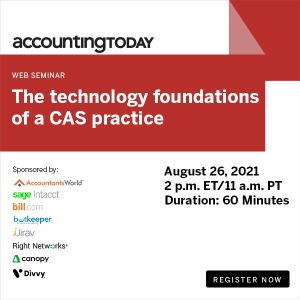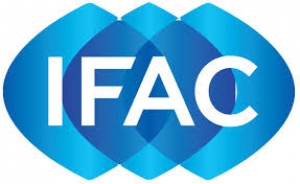عرض العناصر حسب علامة : تكنولوجيا
ارنست اند يونج EY معترف بها كشركة رائدة في تقييم موردي خدمات الأمن الاحترافية لدول الخليج
معلومات إضافية
-
المحتوى بالإنجليزية
EY has been named a Leader in Professional Security Services in the GCC region by the IDC MarketScape.
The report is based on a comprehensive framework assessing 20 providers in the regional professional security services market on their current capabilities and future strategies in addressing the cybersecurity challenges faced by end-user organizations across the region.
According to the IDC MarketScape: GCC Professional Security Services 2020 Vendor Assessment, “EY has been able to create one of the largest teams of cybersecurity professionals in the region. Alongside the company's history of cybersecurity consulting worldwide and its partnerships with local and global technology and services players, this SOC makes EY one of the strongest cybersecurity services providers in the region. The company has invested in developing local talent and creating a large staff of cybersecurity professionals who are bilingual (in Arabic and English) and are nationals of GCC countries, which gives EY an added advantage in driving customer relations and satisfaction.”1
Wasim Khan, EY MENA Consulting Leader, says:
“We are extremely proud to be recognized by the IDC MarketScape as a GCC Leader in Professional Security Services. The diversity, depth and breadth of our team are a testament to our dedication to supporting security practices in the GCC region. The COVID-19 pandemic fast-tracked digitalization across all sectors, leaving no room for security uncertainty. Our broad cyber consulting portfolio which includes managed security services, have been crucial to executing critical turnkey programs quickly and efficiently for our clients in uncertain times.”
Clinton Firth, EY Africa, India and Middle East Cybersecurity Leader, says:
“The EY Cybersecurity team is very happy for recognition of the hard work over the years to build a world leading practice in the GCC, that is absolutely focused and driven to solve the most complex issues that our clients face. We will continue to invest and grow our cybersecurity business from strength to strength with the right professionals and assets to solely serve the continuing client demand; all in the face of the ever-increasing cybersecurity threats our client face.”
Varun Kukreja, Senior Program Manager at IDC, says:
“Though EY has been a critical Digital Transformation player in the region for more than a decade, their Cybersecurity practice has been pivotal in differentiating itself in almost all facets of portfolio offerings. More so, EY cybersecurity team dedicates itself towards co-innovating with their client base and taking problem solving to an elevated level."
EY continues to expand its security offerings, talents, and investments in the five core competencies of: strategy, risk, compliance, and resilience; data protection and privacy; identity and access management; architecture, engineering, and emerging tech; and next-gen security operations and response.
تعزيز المرونة من خلال عمليات الاندماج والاستحواذ
يتطلع التنفيذيون في منطقة الشرق الأوسط وشمال إفريقيا إلى تعزيز مرونتهم من خلال عمليات الاندماج والاستحواذ
معلومات إضافية
-
المحتوى بالإنجليزية
As capital confidence rebounds, corporates in Middle East and North Africa remain nimble and resilient after an unforgettable year.
In brief
Corporate finance and transaction activity in MENA remain buoyant, with the pandemic crisis increasing focus on strategic M&A.
Strategic considerations and transformation programs focus on business resilience and accelerating digitization.
Governments across the region remove red tape to attract foreign direct investment (FDI).
The COVID-19 pandemic crisis has been an unprecedented event, with varying effects on individual countries and sectors in the Middle East and North Africa. Reduced travel, social distancing, remote working and low oil prices have had a disproportionate impact on corporate earnings. Yet, according to the latest results from the EY Global Capital Confidence Barometer, 71% of MENA respondents expect to see revenues return to pre-pandemic levels by 2022 or earlier, while 69% anticipate a return to normalized profitability within the same time frame.
M&A activity driven by government-related entities (GREs) and market consolidations
The Middle East is predominantly a buy-side market given its cash-rich nature. GREs have been a key driver of deal flow over the past 24 months. Largely led by the transformation of national oil companies ARAMCO and ADNOC, and by the investment strategies of ADQ and PIF, GREs contributed to 62% of deal value in 2020.
There has also been a general trend toward increased privatization, especially in the Kingdom of Saudi Arabia (KSA), related to key infrastructure assets, including electricity, aviation, water, customs, staples and housing.
MENA executives find that the current circumstances present a unique time for M&A, with several sectors ripe for consolidation. Domestic private equity (PE) investment has been relatively low in recent years, partly due to challenges in providing reasonable internal rates of return (IRRs) on investments made in the past, and partly as a result of the adverse impact from the news surrounding Abraaj Group. Domestic PE funds are currently more focused on divestments. Nevertheless, there is still a pipeline of interesting mid-market opportunities, largely driven by sellers’ needs to raise capital.
According to the latest results from the EY Global Capital Confidence Barometer, 81% of MENA respondents expect the Middle East to be preferred investment destination that will generate the most growth and opportunities for their company in the next three years.
Strategic and portfolio reviews focus on business resilience and accelerating digital transformation
Accelerated by the pandemic, every MENA respondent surveyed indicates that their company conducted a thorough strategic and portfolio review in 2020. Immediate strategic priorities include cost optimization, capital allocation and understanding the long-term impacts of the pandemic on their business. However, so far, we’ve seen relatively little in the form of restructuring or liquidations. Businesses appear to be managing their costs, while consumers pivoting to staycations have reversed early declines in the travel and tourism industries.
MENA companies are also focusing strategic efforts on digitization. Accelerated by the pandemic, 87% of MENA companies are undertaking substantial business and technology transformations to stay relevant and accelerate growth. The application of technology has made MENA corporates more productive, promoting a gestalt that COVID-19 has triggered the beginning of a widespread digital makeover across sectors.
MENA respondents cite a specific focus on accelerated digitization of customer journeys and business processes as their most important strategic action for growth. MENA executives also are looking for digital solutions that can help them increase customer interactions, and technology and automation that can reduce labor costs and increase scalability to drive increased profit margins.
MENA governments are making the region more attractive for FDI
Governments in the region are enacting regulations that are more friendly to FDIs, both on a corporate level (foreign ownership of assets, easing of capital market norms and simplifying the ability to invest in local capital markets) and a citizen level (elongation of visa periods, citizenship, among other incentives). At the same time, governments, including the United Arab Emirates, are trying to promote liquidity in the capital markets via mandatory listings for certain types of organizations and secondary markets for medium-cap companies.
Growth plans rely on bolt-on acquisitions
In a period of muted organic growth, 84% of the respondents say they plan to invest in bolt-on acquisitions and 94% of the respondents expect greater competition for assets; much of the competition is expected to be from private capital in MENA.
The EY Global Capital Confidence Barometer confirms that even in the worst crisis known to humankind, MENA corporates remained largely resilient and nimble. They are capitalizing on the new normal and successfully pivoting their businesses to an exceptional intersection of the physical and digital worlds.
من أين يبدأ المسئول؟
يشير جاري بومر، قائد فكر إدارة التكنولوجيا والممارسة، إلى النقطة الحاسمة وهي أنه لكي تنجح شركات المحاسبة في الابتكار، يجب أن يكون شخص ما مسؤولاً عنها. سواء كانت شريكًا أو مسؤولًا رئيسيًا للابتكار أو حتى لجنة صغيرة، تحتاج الشركات إلى وضع وجه للابتكار، ومحاسبة شخص ما عن بناء وتعزيز ثقافة تشجع وتدعم الإبداع، والتي تستفيد من الأفكار الجديدة والطرق الجديدة للقيام بالأشياء، والتي تطور بشكل روتيني حلولًا جديدة. للتأكد من حدوث كل ذلك، يجب أن يكون هناك شخص مسؤول عنه بشكل منتظم.
معلومات إضافية
-
المحتوى بالإنجليزية
Where does the buck start?
By Daniel Hood
April 01, 2021, 9:00 a.m. EDT
2 Min Read
Facebook
Twitter
LinkedIn
Email
Show more sharing options
In a recent column, technology and practice management thought leader Gary Boomer makes the critical point that, for accounting firms to succeed at innovation, someone needs to be responsible for it. Whether it’s a partner or a chief innovation officer or even a small committee, firms need to put a face to innovation, to hold someone accountable for building and reinforcing a culture that encourages and supports creativity, that leverages fresh ideas and fresh ways of doing things, and that routinely develops new solutions through a systematized pipeline. To make sure all that happens, someone needs to be in charge of it on a regular basis. The buck, as they say, needs to stop somewhere.
But where does the buck start?
The simplest answer is: anywhere and everywhere. While ultimate responsibility for innovation in a firm must reside with a single person or very small group, innovation itself can come from multiple sources — from partners and entry-level staff, from clients and customers, from software vendors and joint venture partners, from everyone and anyone who can have an idea. In fact, one of the key responsibilities of a chief innovator is to make sure that everyone in the firm and within its sphere of influence feels empowered to innovate, to make suggestions, to dream up new services, new solutions, new methodologies and new processes. Imagination is no respecter of rank or propriety; good ideas can well up anywhere. (Our cover storyon technology and audit quality offers a great example: an associate at the most junior level built a data workflow and visualization for their own personal use that’s now saving countless hours for staff all across a Big Four firm — see page 6.)
Managing Your Firm in a Post-COVID World
Think beyond the pandemic with exclusive resources to help you build a thriving virtual practice.
SPONSORED BY INTUIT ACCOUNTANTS
Innovation can start with anyone; it can also start anywhere. Great ideas for improving a practice area can certainly come from the staff in those departments, but they can also come from their clients, or from admin staff who handle the billing for those services, or from the banker or lawyer who referred those clients to the firm. Good and interesting ideas pop up in all sorts of places — if you’re looking for and encouraging them.
Just as important as all that is the fact that innovation can come in a multitude of forms, and is definitely not limited to technology. To be sure, many innovative ideas can be substantially enabled by hardware and software, but that’s about elaboration, not origination, and it’s a mistake to expect that only the tech-savvy will be coming up with million-dollar ideas.
As with most everything else, innovation was accelerated by the COVID-19 pandemic. Dozens of firms created new solutions for figuring out when clients could safely reopen their offices, or built Paycheck Protection Program calculators, or otherwise dreamed up unusual ways to keep their clients afloat. Necessity was the mother of invention there, but necessity won’t necessarily disappear when the pandemic is over — just the perception of pressure. Clients will still need radical new solutions to changing environments, firms will still need to build them, and they will still need to encourage their development wherever they may spring up.
Innovation may be just a few people’s responsibility — but it should be part of everyone’s job.
بناء مهنة محاسبية
ماذا تفعل بشهادة المحاسبة في عام 2021؟ منذ وقت ليس ببعيد، كانت الإجابة على هذا السؤال واضحة إلى حد ما، ولكن في هذه الأيام، أصبحت الفرص المهنية لخريجي المحاسبة والمالية أكثر انفتاحًا. إن الطلب الكبير على خريجي المحاسبة، المنتشر عبر العديد من الصناعات التي تتطلب مهاراتهم وتخصصاتهم المتخصصة (ويقدمون مكافآتهم الخاصة)، يضع محترفي المحاسبة الشباب في مساحة مفتوحة على مصراعيها في بداية حياتهم المهنية.
معلومات إضافية
-
المحتوى بالإنجليزية
Building an accounting career: One size does not fit all
By Sean McCabe
August 30, 2021, 9:00 a.m. EDT
8 Min Read
Facebook
Twitter
LinkedIn
Email
Show more sharing options
What to do with an accounting degree in 2021? Not too long ago, the answer to that question would have been fairly straightforward, but these days, professional opportunities for accounting and finance graduates are much more open-ended. A high demand for accounting graduates, spread across multiple industries that require their own niche skills and specialties (and offer their own rewards), puts young accounting professionals into a wide-open space at the start of their careers.
That being said, there’s definitely a paradox of choice for students and young professionals. With so many paths open, how do you know which one to take? What questions should young accountants consider before committing to a certain field of study or area of expertise?
In an age when accountants can seemingly pursue any professional path they wish, the only thing that’s certain is that nothing is. And while it can be daunting to have so many options to consider at the start of one’s career, experts in the field stress that the flexibility available to young professionals is a great asset.
“Accounting grads need to know that there is an abundance of options for them to pursue — CPAs do more than just audit and tax,” said Elizabeth Brown, student and diversity outreach manager at the Illinois CPA Society. “Their skills and background allow them to work in any area of their choosing, with expanded opportunities in areas like consulting services and technology. Plus, with CPAs retiring out of the profession and a decline in the number of CPA candidates, [they] are in high demand, with more advancement opportunities.”
“Each career path will not be exactly the same for any two individuals,” said Becky Sproul, talent and culture leader for audit at Big Four firm KPMG. “Career paths will be determined by the ability to provide insights and deliver value through baseline accounting knowledge coupled with future-focused technology skills.”
And if young professionals find themselves in a role or career path that’s not right for them, the need for accounting professionals across multiple industries gives them plenty of opportunities to try something new.
“My experience has been that accounting and finance is a flexible space to expand your career,” said Michael Rodriguez, a CPA and 2013 graduate of the University of Illinois at Chicago, currently on staff at WEC Energy Group. “I started in public accounting, where I had experience in personal tax and audit of companies in the financial services industry. I [now] work in internal audit for an energy/utilities conglomerate.”
The remote revolution
Another new factor to consider in young peoples’ careers is the opportunity to start — and perhaps carry out the rest of their careers — in a remote work environment. As the COVID-19 pandemic forced much of the field into new work environments last year, new accounting professionals were tasked with starting their careers in this unique setting. However, some appreciate the newfound ability to work exactly where and how they want, adding even more to career flexibility.
“It will be interesting to see how corporations adjust to new ways of working after the COVID-19 pandemic,” said Jennifer Kreb, a 2017 graduate of DeVry University and senior associate at KPMG in Dallas. “Personally, I would like a hybrid approach with the option to work at home a few days a week and at the KPMG office or client site a few days a week as well. Many young professionals are looking for increased flexibility, so it will be interesting to see how firms respond and how this will impact company culture, real estate and office spaces.”
This freedom doesn’t come without caveats, however. “The skills, characteristics and work ethic that employers are looking for haven’t changed just because employers are now hiring remote,” added Jeff Phillips, CEO of Padgett Business Services and co-founder of accounting staffing firm Accountingfly. “Good training, putting in hard work to learn the technical skills, having the highest integrity, and being a great team player are still essential for getting the best roles. … There is one new skill I think it’s critical to learn — learn how to work remotely well. This requires self-discipline and a self-starter mindset, great writing skills and video communication. It’s the first thing a remote employer will look for before moving on to the core technical skills.”
Sergey Nivens - stock.adobe.com
The right skill set
Even as the possible pathways for future accountants multiply, so too does the number of abilities that they’ll need to pursue them, and that potential employers will expect them to have.
“Regardless of the shape a career in accounting takes, it’s going to require the ability to constantly adapt and learn new skills to meet the challenges of the day,” said Sue Coffey, the CEO of public accounting at the Association of International Certified Professional Accountants. “In 2021, we’re continuing to see some of the greatest opportunities in the profession around technology. Any career path in accounting in 2021 is going to require a core knowledge of technology and the ability to harness it to meet the needs of clients and drive success in organizations.”
While a basic understanding of technology is a clear necessity, the rest of the young accountant’s toolkit can be a bit unclear when it comes, for instance, to deciding what specific college major, degree or licensure to pursue.
Take, for instance, the CPA license: It’s the gold standard in accounting credentials, but has been steadily losing its appeal to young accounting and finance professionals over the last few years. An Illinois CPA Society report released earlier this year, “A CPA Pipeline Report: Decoding the Decline,” found that a growing number of young professionals don’t find licensure necessary because they “do not see the return on investment; they do not see their employers or prospective employers supporting or requiring it; and they see other credentials or specialties as being more valuable to their careers,” according to Kari Natale, ICPAS senior director of planning and governance.
Also take into consideration the newly unveiled CPA Evolution education model, via the American Institute of CPAs and the National Association of State Boards of Accountancy, which is bullish on teaching a curriculum that reflects a “deep understanding of new and emerging technologies … essential for CPAs entering the profession,” according to Coffey.
So if the idea of what an accountant is (and can be) is in flux, where exactly should one start in their collegiate careers? “A strong skill set in tax or audit is a great start for success in the profession,” Coffey said. “But the importance of skills like problem-solving, critical thinking and professional skepticism cannot be understated. Working to develop these skills, understanding the power of effective and persuasive communications and presentation skills, and developing leadership traits will help take your career to the next level.”
“Young professionals should take a multipronged approach to their skill development and be sure they do not ignore the ‘soft’ skills, such as communication, project management and people skills,” added Sproul. “In addition to continually building their accounting and auditing acumen and technology skills, they must develop a strong relationship with their clients and understand their clients’ business and industry as well as — or better than — their clients.”
And despite recent changes in attitudes, experts still stress that the CPA license opens more doors than it closes. “Students can set themselves up for the greatest success by earning their CPA license before they begin working full-time,” said the ICPAS’s Brown. “We … see young professionals regretting not taking their CPA exams sooner because they find themselves at a disadvantage having to adjust to the time commitments of their job and preparing for the CPA exams.”
Asking the right questions
The sheer range of opportunities available to young accountants, and the way they can be tailored to suit the individual, makes it impossible to advise young accountants on a one-size-fits-all career path — but experts do offer very specific advice on how they can make the most of all the possibilities for the longest possible time.
To start, simply taking a proactive approach early in one’s career is one of the best decisions young professionals can make. “Planning a career really begins as a student, and one common mistake we see is when students don’t take advantage of the opportunity to explore various career options through their internships, and then feel locked into a career path that may not be the best fit for them,” said Brown.
“I also think the sooner a young professional adapts a lifelong learning mindset, the better off they will be,” added Coffey. “I don’t know anyone who came into the profession with a base of skills and knowledge that they were able to rely upon for their entire career. And with the pace of change quicker than ever, embracing a cycle of learning, unlearning and relearning is essential to continued development.”
It’s also become voguish in recent years for young professionals to start in public accounting and then transfer over to private businesses in fairly short order. Our experts, though, say that moving on too quickly isn’t necessarily the best move.
“One of the questions they should ask is what’s the rush to get out of public accounting?” said AccountingFly’s Phillips. “Why go in-house? I think this speaks to every candidate. [They] should know their goals and have a vision for their career. Don’t chase every shiny object that comes along, and in these days, lots of opportunities will come calling, so it’s important to have a sense of where you’re going.”
“Take advantage of the many opportunities a career in public accounting provides,” suggested Sproul. “Try a rotation, apply for a role on an international engagement, and develop new skills to become a well-rounded professional — whether those skills are in accounting, technology or soft skills.”
Seeking mentorship is another crucial factor early in one’s career, as it gives young professionals not only an advantage in areas such as networking, but a direct, human connection to what their future selves can accomplish.
“I have gotten a lot of advice from audit managers and partners I have worked with,” said KPMG’s Kreb. “It is often when you become comfortable and develop trust with someone that you can have honest and vulnerable discussions about long-term careers, happiness as a manager/partner, the factors that keep someone at [the firm], and advice for specific situations.”
ندوة ويب: أسس التكنولوجيا لممارسة خدمات محاسبة العملاء CAS
معلومات إضافية
- البلد عالمي
- نوع الفعالية مجانا
- بداية الفعالية الخميس, 26 أغسطس 2021
- نهاية الفعالية الخميس, 26 أغسطس 2021
- التخصص تكنولوجيا
- مكان الفعالية أونلاين
ندوة ويب: 5 أسئلة يجب على المديرين الماليين طرحها على المراقبين
معلومات إضافية
- البلد عالمي
- نوع الفعالية مجانا
- بداية الفعالية الأربعاء, 25 أغسطس 2021
- نهاية الفعالية الأربعاء, 25 أغسطس 2021
- التخصص محاسبة ومراجعة
- مكان الفعالية أونلاين
القيادة الأخلاقية في العصر الرقمي
معلومات إضافية
-
المحتوى بالإنجليزية
Professional accountants have a wide range of skills and competencies, which are underpinned by ethics, trust, integrity and recognition of their public interest responsibility. Complexity in the professional environment, brought on by rapidly evolving technology, digital disruption, and mis/disinformation is directly impacting all organizations and professional accountants. IFAC has teamed up with the Chartered Professional Accountants of Canada and the Institute of Chartered Accountants of Scotland to examine the ever-changing technology landscape and its implications for ethical leadership, including the challenges and opportunities ahead for the accountancy profession.
The group has already produced an exploratory paper and a global roundtable event. They will now develop four thought leadership pieces to offer practical guidance for professional accountants, professional accountancy organizations, educators and employers. This thought leadership is also informed through the ongoing work of the International Ethics Standards Board for Accountants (IESBA)’s Technology Working Group, and the diverse views of stakeholders gathered through its technology initiative’s outreach.
شهادة الضوابط العامة لتكنولوجيا المعلومات من معهد المدققين الداخليين (IIA)
سيعلمك برنامج شهادة الضوابط العامة لتكنولوجيا المعلومات التابع لمعهد المدققين الداخليين الدولي (IIA) كيفية تقييم مخاطر وضوابط تكنولوجيا المعلومات.
معلومات إضافية
-
المحتوى بالإنجليزية
The IIA's IT General Controls Certificate
Register Now
*IIA Members, please log in for member pricing.
The IIA’s IT General Controls Certificate Program will teach you how to assess IT risks and controls. Achieving the certificate will validate your knowledge and experience in IT auditing. It’s time to exhibit expertise and audit more effectively.
This innovative self-study program is available exclusively through the convenient IIA Training OnDemand platform and focuses on the following:
IT Essentials: Introduction to IT IT Essentials: Introduction to IT General Controls Logical Security: Application, Database, and Operating System Layers
Logical Security: The Network Layer Auditing IT Change Management Understanding the SDLC
Exploring Corrective Controls Computer Operations Physical and Environmental Controls
Governance of Enterprise IT Auditing Project Management Practices Auditing Third-party Technology-related Risk
Exhibit your expertise and specialized knowledge with the IT General Controls Certificate.
الدورة التدريبية: دليل التدقيق الداخلي لبرامج الفدية
معلومات إضافية
- البلد عالمي
- نوع الفعالية برسوم
- بداية الفعالية الأربعاء, 25 أغسطس 2021
- نهاية الفعالية الجمعة, 10 ديسمبر 2021
- التخصص تكنولوجيا
- مكان الفعالية أونلاين
في شركات المستقبل، يتحد الجميع معًا
إنها ظاهرة معروفة أنه عندما يتم تسخير خيول سحب معًا، فيمكنهما سحب ثلاثة أضعاف الوزن الذي يمكن لكل منهما سحبه على حدة. وبالمثل، فإن فريق كرة قدم عظيم، متحدًا في رؤيته وأهدافه، مع تركيز كل عضو في الفريق على دوره الخاص، سوف يتفوق على كل المنافسة في سعيه لتحقيق البطولة.
معلومات إضافية
-
المحتوى بالإنجليزية
In the firm of the future, everyone pulls together
By Alan Anderson, Dustin Hostetler
June 18, 2021, 9:00 a.m. EDT
6 Min Read
Facebook
Twitter
LinkedIn
Email
Show more sharing options
It’s a well-known phenomenon that when two draft horses are harnessed together, they can pull three times the weight that each can pull separately. Similarly, a great football team, united in its vision and goals, with each team member focused on their own role, will outplay any and all of the competition in its pursuit of a championship.
So why aren’t we applying that same synergy to our accounting firms?
Transformation into the firm of the future will require firms to be united in their vision and their goals. This means alignment not only in the services they provide clients, but also how clients experience working with firms, and how staff members experience working at those firms. Business owners, clients, and employees already all expect more than a transactional relationship — they want something that is relevant to their personal wants and needs and that adds value beyond the price they pay. In our work with firms, we have noticed that firms tend to have challenges with alignment that prevent them from working seamlessly together for the benefit of their clients.
Inflo Digital Audit: The profession's first end-to-end digital audit platform
Do more with data, automate compliance, and improve your value with Inflo’s Digital Audit -- the accounting profession's first data driven audit solution...
SPONSOR CONTENT FROM INFLO
Currently, tax and audit tend to operate in silos, not sharing information or firmwide goals. Businesses that work with both tax and audit tend to have a schizophrenic experience in their interactions with an accounting firm. One side will request documents and information that has already been supplied to the other side, but most likely in a different format. One side wants the trial balance in Excel, while the other side wants login information for QuickBooks Online.
This makes a poor experience for clients and staff alike. Staff who move from tax to audit or vice versa may experience cultures as distinct as working for a completely different firm and may be told that the other area is the “Dark Side.”
Compliance services will not be going away, but those services are being priced as commodities. Declining margins, fee pressure, automation, and offshoring mean firms that only provide the bare-bones services of tax returns and audited financials are in a race to the bottom. When that bottom is reached, who will be able to afford to do that work?
Ignoring the keys to the kingdom
Thanks to technology, the current core services of tax and audit give us the keys to the kingdom from which to extract value for our clients. We have tools that let us drill down to the details of every transaction and look under every rock to see what’s there. Simple tools like Excel, and more complex ones that use artificial intelligence, can help us see trends and issues that human eyes, looking at the numbers, cannot detect.
But even with this great store of knowledge at our fingertips, time pressure keeps us from looking under the rocks. Most firms use technology merely to replicate what they did in a paper world, not to free up time to look under those rocks.
Our core services should serve as a springboard for improving our clients’ businesses. Instead, we drop the ball. We could be leveraging our business-mindedness from working with other clients to provide high-value ideas, but we rarely discuss those powerful insights with clients or with others in the firm. Rather than sharing the insights we gain, we move quickly to the next project and the next client.
Our vision for the firm of the future
We believe that to remain viable, accounting firms will need to transform from separate tax and audit departments into a unified whole, focused on advisory services. Leaders of tax and A&A need to come together to merge their firms into a cohesive team, aligned to the same firmwide vision. Both sides need to move together in sync to make transformation happen. This will require changes to people, processes, and systems.
Compliance will remain the base of services — it’s not going away. But this will be tax, audit and accounting with a strategic bent. The annual deliverables — whether that’s a tax return or an audit or both — will be accompanied by additional services. At the base advisory level, regular work and client meetings will be performed both before and after the tax return or audit to establish a rhythm of planning and strategy throughout the year. The next level up will be one-off consulting services on an as-needed basis. These consulting services could include any of the following:
Data metrics and analytics;
KPI monitoring with a custom dashboard;
Succession planning;
M&A support, including business valuation;
Cybersecurity and IT consulting; and,
Bonus plan evaluation.
The firm of the future will also follow the “one firm” model with alignment between tax, audit, and the firm’s vision. Clients will have a better and consistent experience across core services due to increased collaboration between those services. Tax and audit will share information and technology know-how so that everyone is working from the same playbook. All parts of the firm will be moving ahead into the future in synchrony.
Benefits of creating the firm of the future
By creating a unified experience across the firm, everyone — clients, staff, and partners — will have a better experience. Making full use of technology tools will help everyone work smarter, not harder. Instead of just replicating the paper world, innovative uses of technology will introduce new methods for getting the work done effectively and efficiently. Team members won’t be mindlessly filling out the same checklists and forms to get the work out the door faster, but will be empowered to look under every rock, to think, and to make connections. No longer in a race to the deadline, they will leverage the business-mindedness that they have acquired from working with other clients who have the same issues but solve them differently. The goal of every engagement will be to create value for clients through insights and ideas to make their businesses better.
Firms need fewer clients when they layer high-value advisory services onto commodity compliance services. Instead of 100 mediocre clients, maybe you’ll only need 20 great clients. That $800 tax return can be leveraged into $1,500 for tax strategy and planning. An audit with a fee of $20,000 can be doubled when you add in additional advisory and consulting.
Client retention improves vastly when the necessary evil of compliance is transformed into an essential service that helps clients grow their businesses. For clients who see value in what you provide, cost becomes a non-issue. They become sticky to the firm, and not necessarily to a particular partner or manager because the combination of services from a unified firm is greater than any one part on its own.
Besides retaining your best clients, you’ll have better staff retention, an important consideration today when the pipeline for new talent isn’t keeping up with demand. You’ll keep the inquisitive people and the ones who want to make a difference in their clients’ lives. A firm that shares a unitary and forward-thinking vision will be attractive to people who seek work with more meaning.
A unified, forward-thinking firm will also have the resiliency to absorb the future legal, regulatory, and technology changes that we all know are coming. Technology and AI will take over the bottom-level compliance work, but a firm aligned around advisory services will still be able to provide the much-needed and highly valued strategies and insights that our clients themselves will require to remain viable in our rapidly changing world.
Until now, tax and audit have largely worked independently, limiting our ability to propel our clients toward success. But enhanced alignment between these service lines around a common vision will harness a firm’s combined skills and wisdom, to create a firm that is much more than the sum of its parts. Like a team of draft horses, this combined focus will help power the changes that we and our clients will need to thrive in the future.










